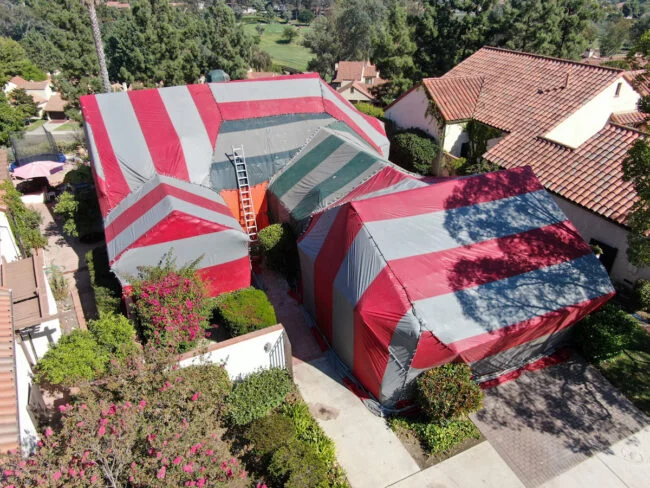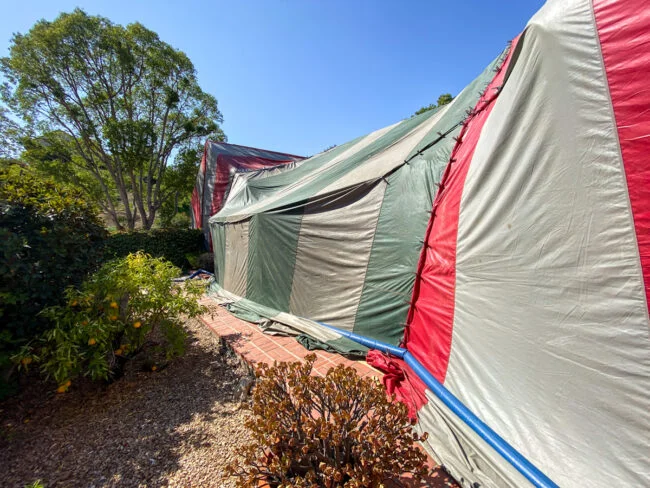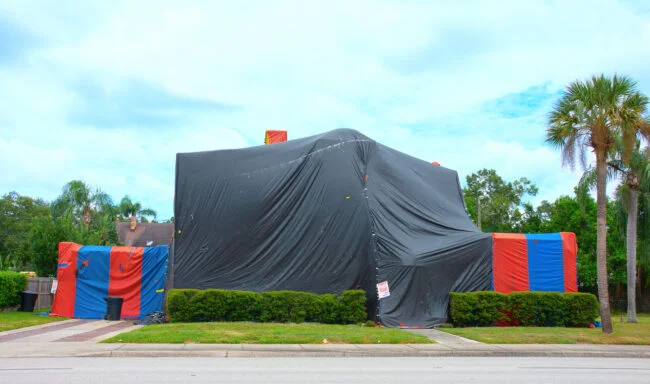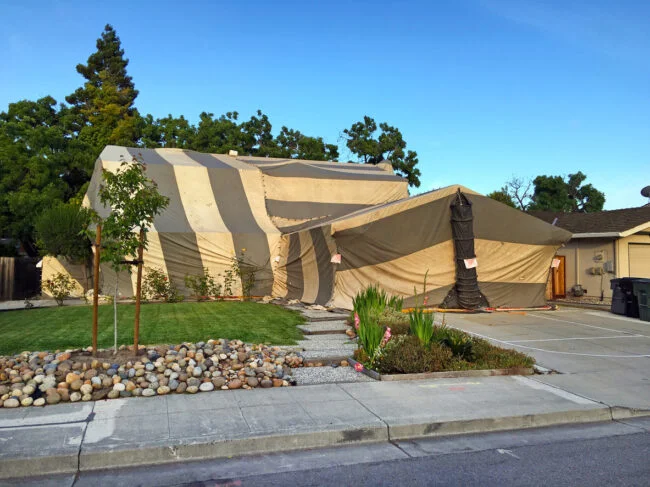On my drive home from work the other day, I couldn’t help but notice a peculiar sight—a massive tent enveloping a house in our neighborhood. Naturally, my curiosity piqued, and questions arose about what might be happening inside. Is there cause for concern, or is it simply a harmless spectacle? Let’s delve into the meaning behind tented houses and their potential impact on the community.
Deciphering the Tent:

Contrary to any circus-related speculation, a tented house often signals a severe pest infestation. Homeowners resort to this drastic measure to combat the likes of bed bugs, termites, rodents, and other persistent pests. The process, known as fumigation, entails sealing the home with a tent, introducing poisonous gas, allowing time for the gas to eradicate pests, and finally, removing the tent to facilitate gas dissipation.
Safety Measures:
While the eerie appearance may evoke concern, fumigation tents are designed to contain hazardous gases within the treated property. Leakage is rare, and even if it occurs, the gas swiftly dissipates into the open air, posing minimal risk to neighboring homes. The process effectively eliminates pests without driving them into adjacent dwellings, ensuring a targeted approach to the infestation.

Chemical Composition:
The primary fumigation gas, sulfuryl fluoride, is an odorless, colorless toxic substance that targets the central nervous systems of pests. To enhance safety and deter access, some companies may incorporate tear gas into the mixture. After a few days, the tent is removed, and stringent air quality tests are conducted before allowing occupants back into the home.
Containment with Purpose:
The vibrant, multicolored tents used by pest control professionals serve a crucial purpose—they prevent toxic gases from escaping. Crafted from heavy vinyl-coated nylon tarpaulins, these tents act as a barrier, ensuring the concentration of toxic gas remains lethal for pests while being safe for the surrounding community.
Dispelling Misconceptions:
Contrary to common belief, tenting a house does not lead to the spread of pest infestations in the neighborhood. The process effectively traps and eliminates the pest population within the treated property, preventing the pests from migrating to other homes. Concurrent infestations in the neighborhood may become more apparent due to heightened awareness prompted by the tented house.

Community Awareness:
Ideally, pest control companies inform the neighborhood before commencing fumigation, though this isn’t always mandatory. In such cases, it is crucial for residents to stay away from the tented property and inform neighbors, especially those with children or pets, about the situation. Additionally, it’s a prudent time to inspect your own home for signs of infestation and consider professional pest control services for a comprehensive evaluation.

Conclusion:
The tented house in your neighborhood might appear mysterious, but it’s likely a proactive step in addressing a significant pest problem. Understanding the purpose behind fumigation tents helps dispel concerns and fosters community awareness. As long as proper safety measures are followed, the neighborhood remains secure, and the tent serves as a shield against the unwelcome invasion of pests.
image source : istockphoto










